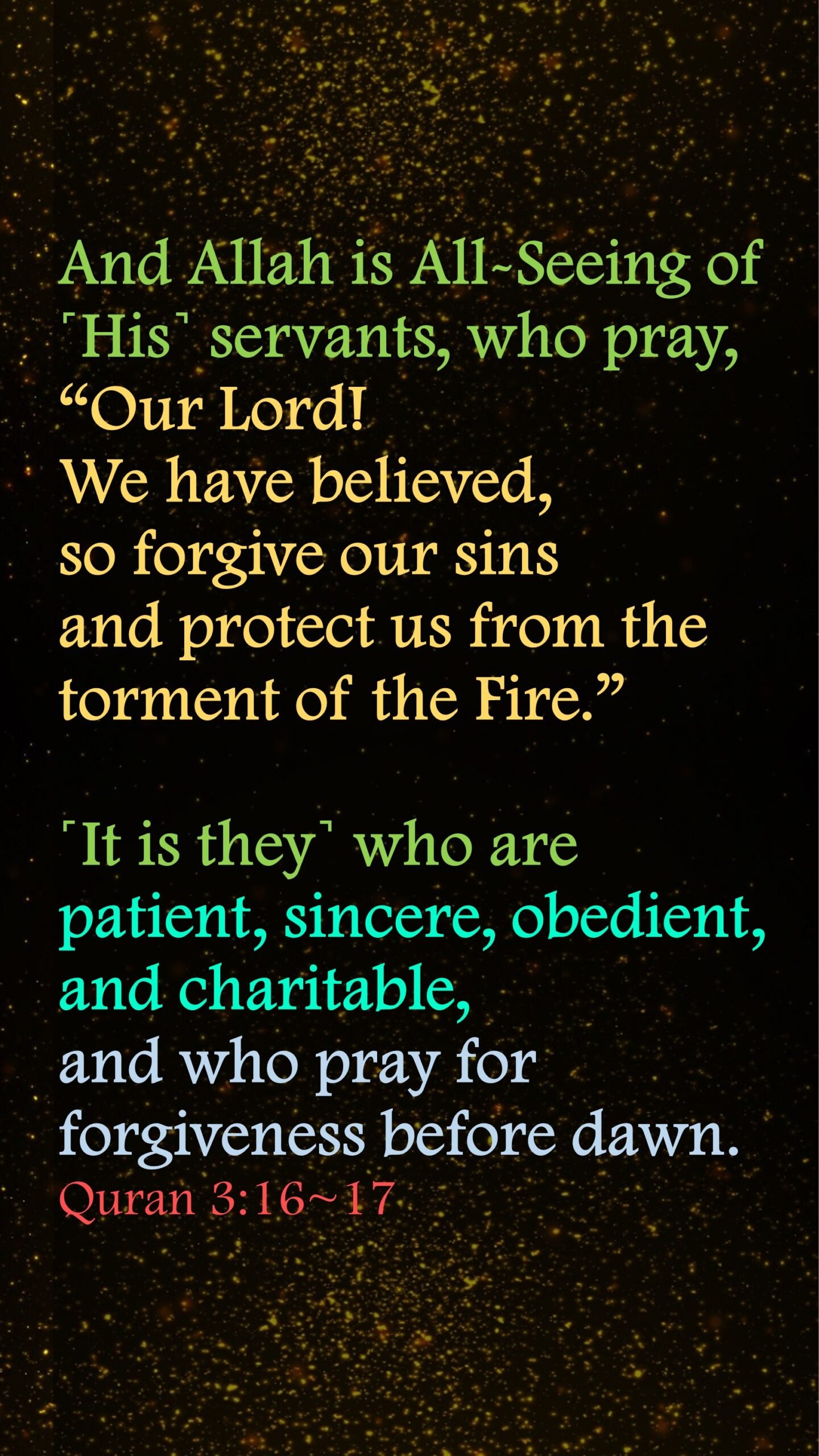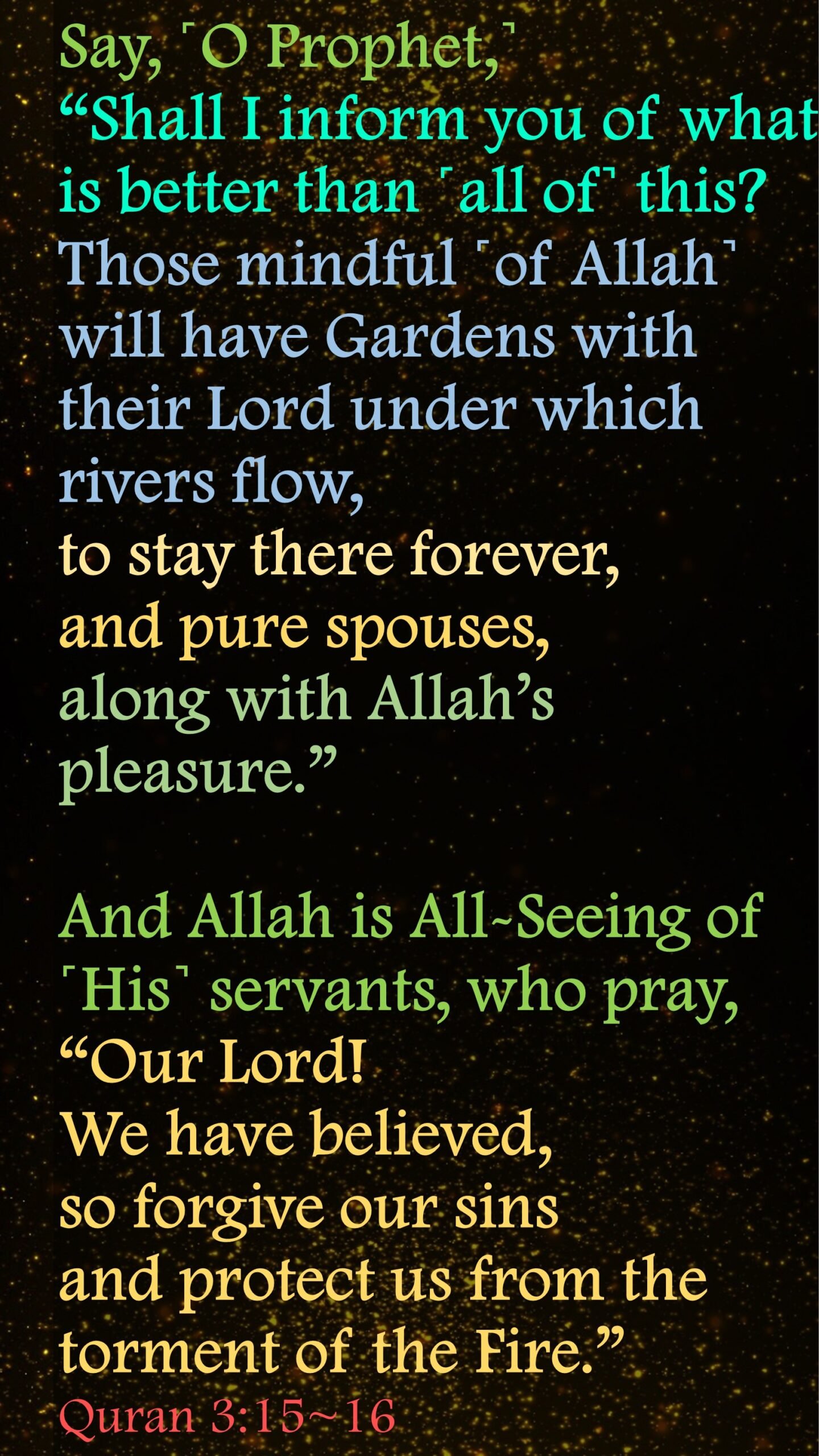Skip to Content
Tag Archives: sins
- Home -
- Posts tagged "sins"
( Page2 )
2
Dec, 2022
Islam, Quran
Abraham, Allah, ayat, believers, chapter 14, daily, doubt, eartth, end, forgive, heavens, Ibrahim, inspirations, invite, islam, islamic, messengers, originator, proof, quran, sins, time, trust, verse 10, verse 11
8
Nov, 2022
Islam, Quran
Abraham, Adam, All Forgiving, All Merciful, Allah, ayat, decendant, disbelievers, forgive, Imran, inspirations, islam, islamic, messenger, Noah, not like, Obey, quran, sins, Surah
30
Oct, 2022
Islam, Quran
All-Seeing, Allah, ayat, before, believe, chapter 3, charitable, daily, dawn, fire, forgive, forgiveness, inspirations, islam, islamic, Lord, obedient, patient, pray, prayer, protect, quran, servants, sins, Surah, Tahajjud, torment, verse 16, verse 17
29
Oct, 2022
Islam, Quran
All-Seeing, Allah, ayat, believe, better, chapter 3, daily, fire, forever, forgive, Gardens, hell, inform, inspirations, islam, islamic, Lord, mindful, PBUH, pleasure, pray, Prophet, protect, pure, quran, rivers, SAWW, sins, spouses, torment, verse 15, verse 16
15
Aug, 2022
Islam, Quran
Allah, alone, avoid, ayat, Chapter 53, daily, deeds, earth, elevate, evildoers, false, fetyses, forgiveness, good~doers, heavens, infite, inspirations, islam, islamic, Lord, major, minor, quran, righteous, shameful, sins, Surah, syumble, true, Verse 31, Verse 32
4
Jul, 2022
Hadees, Islam
affluence, Allah, daily, dajjal, debt, dirt, distant, east, fire, garment, grave, hail, hell, inspirations, islam, islamic, poverty, purify, refuge, senility, sin, sins, torment, trial, wash, Water, west
15
May, 2022
Islam, Quran
Allah, amsolve, Aware, ayat, better, Chapter 2, charity, daily, do, good, helper, inspirations, islam, islamic, known, no, privately, publicly, quran, reward, sins, Surah, vows, wrongdoes







